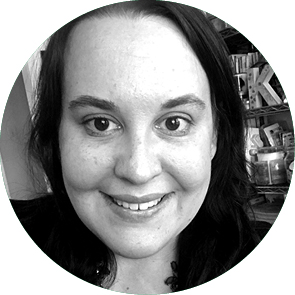Breakthroughs
Finding Our Locus of Control

Kathleen Klecan is the 2020 Maryland School Counselor of the Year and the lead school counselor at Brunswick Elementary School in Frederick County. She also serves as the master teacher for new school counselors in Frederick County Public Schools and is the lead of the mentoring committee for the Maryland School Counselor Association.
There is a well-known principle that school counselors learn during their training called locus of control. At its simplest form, locus of control is how an individual perceives what is inside and outside of their control. This perception guides their choices in life. Since March of 2020, I feel that school counselors have become champions of having students, staff, and families focus on what is within their control, rather than what is not in their control.

For my elementary-age students, learning this becomes a great sorting game. Drawing a circle (and sometimes pictures) on my whiteboard table, I ask even my youngest learners questions like “Is the weather in your circle of control?” or “What about deciding to jump up and down? Is that in your circle of control?” As we sort what we can and cannot control we open up a broader discussion about their impact on both their school family and their family at home.
When students see that they ultimately do have control over their words, actions, and feelings, I notice it helps to alleviate anxiety in many of them. Often, children don’t realize the amount of control they do have in a world where in very recent memory, control (and that sense of safety that comes along with it) was taken away from their families and other safe spaces like schools. Once that anxiety is lessened, my students are ready to set goals and make strides toward achieving them.
I very quickly realized that in my comprehensive school counseling program there was a direct connection between the concept of locus of control that I was heavily discussing with kids and being trauma-informed. How could I spark change within my school community to better utilize this understanding? Coming back from the pandemic, the trauma we all experienced was a constant discussion with staff. I was ready to stop just listing all of the issues that we had against us (or things that were outside of our control) and focus on what was actually in our control.
This led to the creation of a trauma-informed committee so that I could elicit feedback from staff members about how we could positively impact students as we moved forward as educators. That committee work landed on these four goals:
Relationships We need a consistent plan to help foster relationships across the school and community.

Regulation We need to utilize a consistent language and skill set about emotional temperature to help all students and staff feel emotionally healthy.
Importance of SEL We need opportunities for consistent learning for students, staff, and community throughout the school year.
Responsibility We need to ensure that student accountability also ensures an opportunity to receive support and instruction in social-emotional and behavioral skills that a student may be lacking.
Without a doubt, this focus on the things we can control has started to spark change within my school building. Whenever I feel discouraged that things are not positively changing for a student, a staff member, or a family within my community, I return to these four ideas and I think about the ways in which my work has positively impacted these areas. It would be disingenuous to say that we don’t have a ways to go, but I do feel that with a clear mindset guided by locus of control we will continue to make progress in these areas.
So if you ever feel stuck, I encourage you to draw that circle and start your own sort. You never know what you might discover that is within your control to impact.

